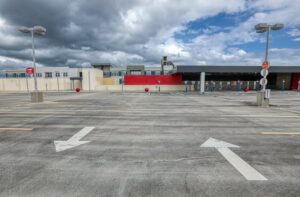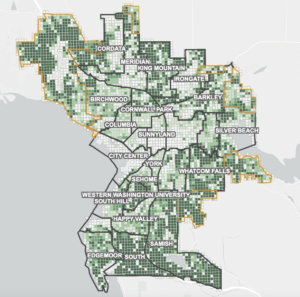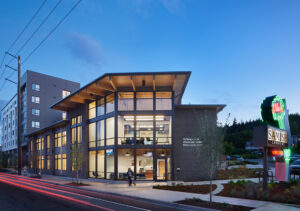City of Bellingham Housing Policy Roundup – August 2024
Bellingham is currently navigating several significant policy developments, each with the potential to shape the city’s future growth and infrastructure. Here’s a brief update on key policy discussions, along with opportunities for public engagement, where applicable:
Parking Reform

The Planning Commission is expected to review proposals for parking reform in late summer or early fall. There were two key policy recommendations that came from City Council’s Parking Reform work session. 1) The removal of parking minimums citywide 2) Removal of parking minimums around WTA Go Lines. City staff are finalizing these proposals, which will be open for public feedback once they reach the Planning Commission.
Urban Forest Plan

The city is revisiting the financial aspects of increasing tree canopy cover from 40% to 45%, with the last estimated cost being around $6.5 million annually. Public concern revolves around the financial burden during a time when the city is already using reserve funds and the impact on the ability develop housing with limited space. There is talk that there might be state level action on Urban Forests. Public input is ongoing via the City’s Engage website.
Emergency Tree Ordinance

The Bellingham City Council recently discussed revisions to the Landmark Tree Ordinance, making the process for handling landmark trees more objective. The council has recommended a Type 6 Process for this issue, allowing for extensive public comment. This is part of a broader effort to align local ordinances with community expectations and environmental goals. The full ordinance and discussion can be viewed on the City Council’s official page.
Middle Housing Ordinance

In compliance with a state mandate, Bellingham is working on implementing middle housing regulations to increase the availability of this housing type. By June 2025, all cities in Washington must have ordinances that conform to a state model code for middle housing, aimed at diversifying housing options and improving affordability. For more information, check the state’s housing policy update page.
Multi-Family Tax Exemption (MFTE)

A recent analysis by the Whatcom Housing Alliance identified opportunities and challenges for the MFTE program, which offers tax exemptions to developers who include affordable housing units. The 8-year exemption has significantly boosted housing development, while the 12 and 20-year tiers impose affordability requirements. Recommendations for Bellingham, Blaine, and Ferndale are forthcoming. Detailed reports and recommendations will likely be presented to City Council in the coming few months.
City of Bellingham staff and elected officials have their work cut out for them. These discussions are set against the backdrop of broader legislative activities in Washington State, with potential updates expected during the state’s 2025 legislative session, beginning January 13, 2025. Public participation is crucial in these processes, providing community members with opportunities to shape the policies that will affect their city’s development and livability.

